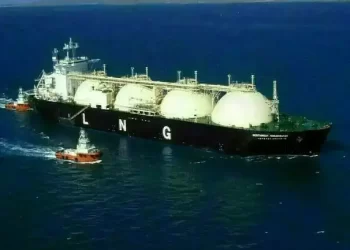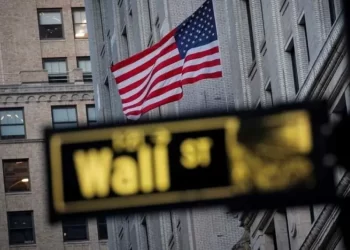LONDON: Oil prices pared gains in volatile trade on Tuesday as fears of an escalation in the Middle East conflict and a drop in production at Libya’s largest Sharara oilfield raised the prospect of tight supplies.
Buying was capped by a weak demand outlook in China, while a global market recovery from a sell-off on Monday provided support.
Brent crude futures gained 3 cents to $76.33 a barrel by 0811 GMT, while U.S. West Texas Intermediate crude futures rose 17 cents, or 0.2%, to $73.11. Both contracts gained over $1 a barrel earlier in the session.
On Monday, both benchmarks fell about 1% against a backdrop of falling global stock markets.
Oil prices are finding a floor as concern mounts that Iran, a major Middle Eastern producer, may retaliate against Israel and the U.S. following the assassination of a Hamas leader in Tehran and an Israeli attack that killed a Hezbollah commander in Lebanon, potentially leading to a wider regional war.
On Monday, at least five U.S. personnel were injured in an attack against a military base in Iraq, U.S. officials told Reuters. It was unclear whether the attack was linked to the retaliation threats.
Oil drops as US recession fears spark broader selloff
The U.S. has urged countries to convey to Iran that escalation is not in its interest, a State Department spokesperson said on Monday.
At the same time, weak demand figures, particularly in China, have limited any oil market rallies.
“ long-awaited seasonal upturn in demand in Q3 seems to be disappointing. Use of on-road fuels like gasoline and diesel is coming below initial bullish expectations,“ Onyx Capital Group analyst Harry Tchilinguirian said.
The bearish demand pictuer was countered to an extent by overnight data showing service sector activity in the U.S., the world’s biggest oil consumer, recovered from a four-year low in July.
A broader rally in Asian equity markets after they plunged on Monday also supported the oil market.
“The broad-based recovery in risk sentiments and more resilient U.S. services sector data offer some support for prices,” IG market strategist Yeap Jun Rong wrote in an email.
“Concerns around U.S. growth risks are eased by resilience in U.S. services activities, but it may have to take more to reassure markets of a stronger global demand outlook for oil.”
Lower production at Libya’s 300,000 barrel-per-day Sharara oil field buoyed prices further. Output at the field, one of the country’s largest, has fallen by around 20% due to protests.
LONDON: Oil prices pared gains in volatile trade on Tuesday as fears of an escalation in the Middle East conflict and a drop in production at Libya’s largest Sharara oilfield raised the prospect of tight supplies.
Buying was capped by a weak demand outlook in China, while a global market recovery from a sell-off on Monday provided support.
Brent crude futures gained 3 cents to $76.33 a barrel by 0811 GMT, while U.S. West Texas Intermediate crude futures rose 17 cents, or 0.2%, to $73.11. Both contracts gained over $1 a barrel earlier in the session.
On Monday, both benchmarks fell about 1% against a backdrop of falling global stock markets.
Oil prices are finding a floor as concern mounts that Iran, a major Middle Eastern producer, may retaliate against Israel and the U.S. following the assassination of a Hamas leader in Tehran and an Israeli attack that killed a Hezbollah commander in Lebanon, potentially leading to a wider regional war.
On Monday, at least five U.S. personnel were injured in an attack against a military base in Iraq, U.S. officials told Reuters. It was unclear whether the attack was linked to the retaliation threats.
Oil drops as US recession fears spark broader selloff
The U.S. has urged countries to convey to Iran that escalation is not in its interest, a State Department spokesperson said on Monday.
At the same time, weak demand figures, particularly in China, have limited any oil market rallies.
“ long-awaited seasonal upturn in demand in Q3 seems to be disappointing. Use of on-road fuels like gasoline and diesel is coming below initial bullish expectations,“ Onyx Capital Group analyst Harry Tchilinguirian said.
The bearish demand pictuer was countered to an extent by overnight data showing service sector activity in the U.S., the world’s biggest oil consumer, recovered from a four-year low in July.
A broader rally in Asian equity markets after they plunged on Monday also supported the oil market.
“The broad-based recovery in risk sentiments and more resilient U.S. services sector data offer some support for prices,” IG market strategist Yeap Jun Rong wrote in an email.
“Concerns around U.S. growth risks are eased by resilience in U.S. services activities, but it may have to take more to reassure markets of a stronger global demand outlook for oil.”
Lower production at Libya’s 300,000 barrel-per-day Sharara oil field buoyed prices further. Output at the field, one of the country’s largest, has fallen by around 20% due to protests.









